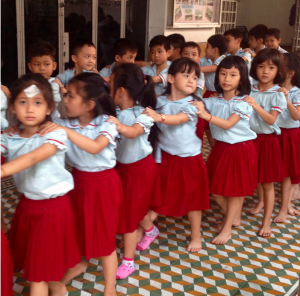 The Cambodia Chinese Diaspora Project was launched in Fall 2014 to study the language of the local Chinese community, especially in the capitol of Phnom Penh. This site includes the several versions of the language used surveys used for a portion of the project and the project abstract
The Cambodia Chinese Diaspora Project was launched in Fall 2014 to study the language of the local Chinese community, especially in the capitol of Phnom Penh. This site includes the several versions of the language used surveys used for a portion of the project and the project abstract
Publications/Presentations
(2019). “Dialects of the Southeast Asian Chinese Diaspora: A Cambodian Case Study.” In The Landscapes of World Dialectology: Festschrift in Commemoration of the Retirement of Yŏsu, Prof. Yi Sanggyu, (pp. 447-512). K. Wiwonhoe, Ed. Seoul: T’aehaksa.
(2017). “Education in the Cambodian Chinese Diaspora.” In O. E. Kagan, M. M. Carreira, & C. H. Chik Eds., The Routledge Handbook of Heritage Language Education (pp. 161-178). New York and London: Routledge.
“From Papeete to Phnom Penh: Speaking of the Chinese Diaspora.” BYU College of Humanities Annual. Barker Lecture . November 2017.
Project Abstract
Although there is a significant–––though not exhaustive––literature on the ethnography and sociology of the Chinese diaspora in Cambodia, there is little research on the language development per se of the centuries old Chinese communities of the area, which includes multiple varieties of Chinese (Chaozhou, Cantonese, Hainanese, Hakka, Fujianese). This project will form the foundation of a book length study on the Chinese language of communities in Phnom Penh and other major cities of Cambodia. The project is divided into major two stages: 1) A survey of language use by students and families of Chinese schools in Phnom Penh. To supplement the student analysis, I survey adults in the broader Chinese community as is feasible (e.g., within cultural and religious organizations (2) Close recording of Cantonese speakers associated with the major Cantonese-dominated schools toward a description of the Cambodia variety of Cantonese.
尽管有相当数量的关于华侨在柬埔寨大移居民族学和社会学的研究文献,却也非面面俱到。不过,针对当地古老中文社区语言发展的研究却是寥寥无几(其中包括几种中国方言:潮州话,粤语,海南话,客家话,福建话)。本研究项目针对位处金边及柬埔寨其他主要城市的中文社区进行调查研究,为日后成书出版奠定基础。
本项目主要由两个部分构成: 一、关于金边中文学校的学生和家庭的语言使用的调查。作为调查的补充部分,我会在可行的情况下扩大调查范围,将更广泛的中文社区成年人纳入其中(例如一些文化和宗教组织)。二、详细记录以粤语为主的学校里的粤语使用者的情况,以对柬埔寨粤语多样性的作出描述。
